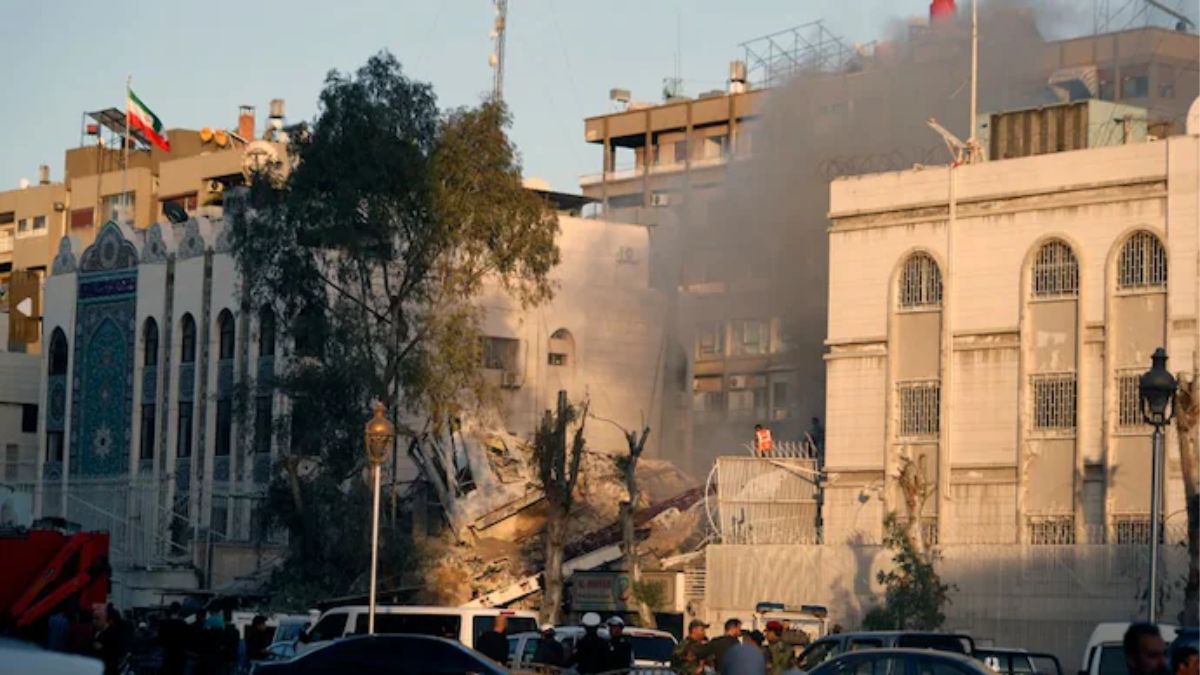Israel has killed Brigadier General Mohammad Reza Zahedi, one of the top Iranian commanders, in an airstrike on an Iranian consulate in Syria’s capital Damascus, said Iran’s Islamic Revolutionary Guard Corps (IRGC) on Tuesday.
IRGC is the vastly influential Iranian armed force that’s separate from the country’s regular military and reports directly to the Supreme Leader of Iran Ayatollah Khamenei. The Israeli strike killed three commanders of the IRGC’s Quds Force, including Zahedi. The Quds Force is the IRGC’s military and intelligence wing that looks after its covert foreign operations.
In a statement carried by Iran’s official news agency IRNA, the IRGC named the seven officers killed in the Israeli strike:
Brigadier General Mohammad Reza Zahedi
Brigadier General Mohammad Hadi Haj Rahimi
Hossein Amanollahi
Seyyed Mehdi Jalalati
Mohsen Sadaqat
Ali Agha Babaei
Syed Ali Salehi Rozbahani
The New York Times reported that Zahedi, Rahimi, and Amanollahi were senior figures in the Quds Force. The other four were also part of the IRGC.
The report further said that the seven IRGC officers were huddled in a secret meeting with Palestinian militants, including the leaders of the Palestinian Islamic Jihad (PIJ), to discuss the ongoing war in Gaza when the Israeli strike killed them. The PIJ, along with Hamas, is among the armed groups in the Middle East opposed to Israel and supported by Iran.
Who is General Mohammad Reza Zahedi?
Brigadier General Mohammad Reza Zahedi was the top IRGC commander in Syria who looked after the Quds Force’s operations in Syria and Lebanon. He is the senior-most Iranian officer to have been killed since the US assassination of the then-Quds Force chief General Qasem Soleimani in 2020.
The NYT reported that Rahimi was second-in-command to Zahedi and Amanollahi looked after Quds Force’s military operations in the region.
Zahedi served under the Quds Force chief General Esmail Ghani but was more influential, according to Israeli outlet Ynet News. The outlet further reported that it was under his command that all the plans for directing Iran-backed combat assets to Syria and Lebanon were approved. The report added he was also involved in planning terrorist activities in Israel.
Impact Shorts
More ShortsZahedi was the Iranian envoy in Lebanon and Syria to command the Quds Force and was effectively the head of the IRGC’s intelligence division along with its ground and air forces in the region.
Separately, Iran International reported last year that Zahedi supervised Iran’s air defence system in Syria.
Zahedi was key to Iran’s support and weapon transfers to the Lebanon-based Hezbollah. He was also Iran’s liaison with Hezbollah, the group that has engaged Israel in the north since the October 7 attack by Hamas and allied groups.
Zahedi commanded the IRGC during the Iran-Iraq War (1980-88) and held many senior positions in the Iranian military over the years, as per a report by the Syrian Scientific Studies and Research Center.
Tensions spike following General Zahedi’s killing
Following the killing of General Zahedi and six other top IRGC officers in the Israeli strike, the tensions in West Asia have risen.
As Iran has said that the building struck by Israel was its consulate, the attack is likely to be seen as one on Iranian soil. In a statement, Iranian Ambassador to Syria Hossein Akbari said that Israeli F-35 warplanes targeted the building with six missiles.
Ali Vaez, the Iran Director for the International Crisis Group, told NYT that Iran’s failure to retaliate would undermine its military presence in Syria but retaliation would lead to Iran falling “into the trap that they [Iranians] think Israel has laid for them to get into a direct war”.
Tamara Qiblawi in an article for CNN noted that the Israeli strike “may be the most dangerous escalation outside of Gaza” since the beginning of the Israel-Hamas War. She noted that while Iran’s regional partners like Hezbollah have engaged with Israel since October 7, they have so far avoided an all-out confrontation, but that may “be an untenable position after today’s strike, which has again brought the region to the brink of an expanded war”.


)

)
)
)
)
)
)
)
)



